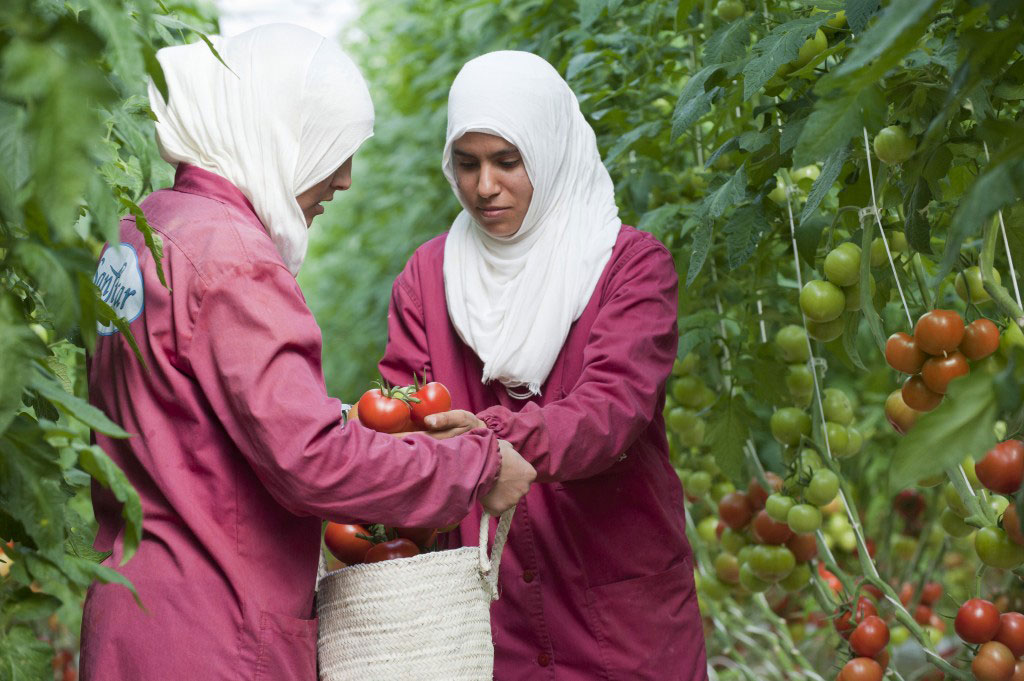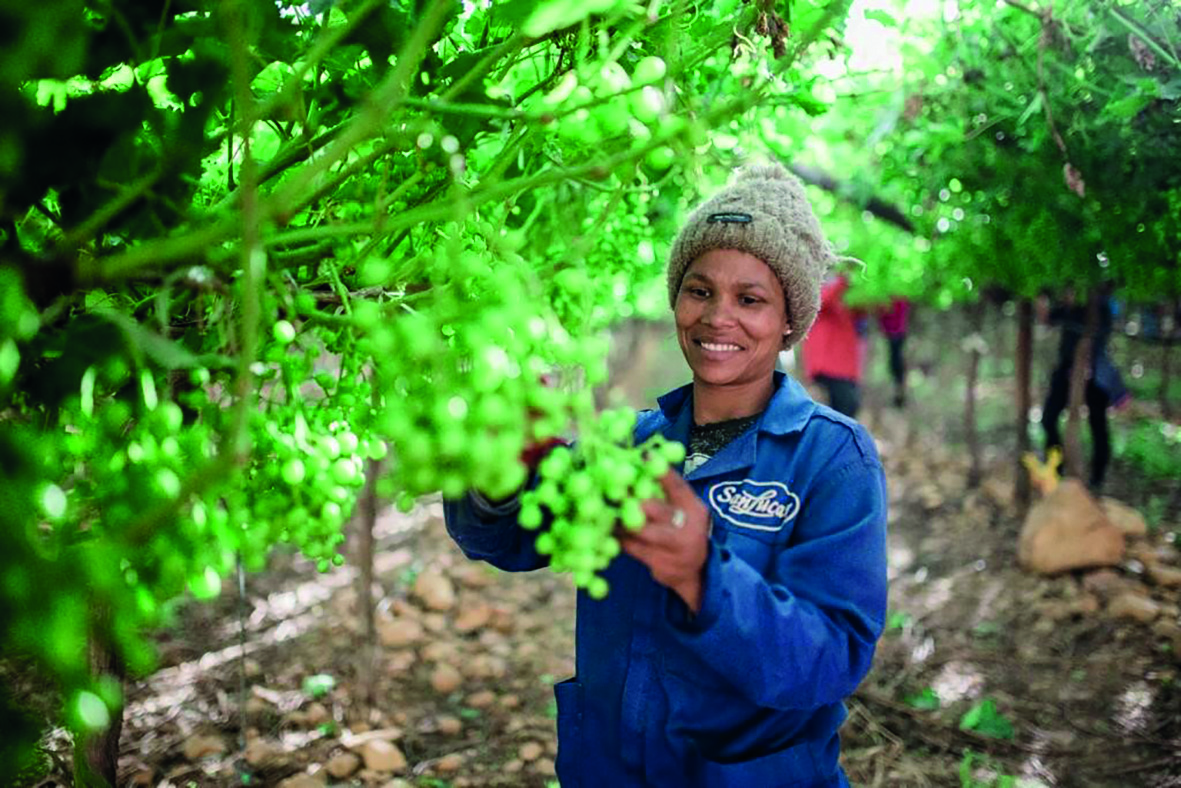Putting Values into Practice

With almost 3,200 employees worldwide, SanLucar delivers more than 740 tons of fruit, juices and smoothies to shop shelves every day. Its operations around the world have led it to reflect on human rights issues, a subject on which the German company wishes to set an example. Nancy Daiss, CR Manager International, answers our questions.
INTERVIEW
Sustainability Mag: What is the German context in terms of Human rights in business? What is the legislative pressure on the subject?
Nancy Daiss: This year, 2021, Germany has adopted the law for Due Diligence in Human Rights along the supply chains, which expects companies to implement human rights due diligence processes. As of 2023, this law is aimed at companies with 3,000 or more employees and companies with 1,000 employees or more as of 2024; foreign companies with branches or subsidiaries in Germany are also included. Authorities will be given strong powers to intervene, and fines can be imposed as well as exclusion from public procurement for up to 3 years may be possible. As a result, companies will be required by law to implement a due diligence management system with a policy statement, a risk analysis, prevention and remedial measures plus a grievance mechanism that involves reporting.
Did the legislation encourage your company to take action and go further?
We see the new law in Germany as a challenge and as a possibility to improve our existing processes, especially regarding the control of our suppliers. As a company, you are once again asked to take a close look at your supply chain, which hence will be examined again, and internal processes can be improved. It also allows us to look again at our current and potential risks in the area of human rights and environmental aspects. We think it is definitely worth it in order to move forward and furthermore, that it is a good thing for the company as well as for society.
What do you think about the idea of having a European legislation?
Legislation at European level is definitely to be welcomed, especially for companies that have cross-border locations and buy and sell their products internationally. Currently, there are many different regulations, which do not always make it easy for companies to keep the overview or to implement concrete measures that apply to all. There can also be competitive differences within countries. With a regulation at EU level, this can be counteracted, and companies thus have uniform guidelines to follow but it should also reflect the different situations for different industry sectors. As an international company with different locations, SanLucar has suppliers and customers inside and outside Europe. A European or even international regulation facilitates our internal processes to address the topic of human rights.

How does your business expose you to human rights issues?
The agricultural sector is a labour-intensive industry where much of the work is still done by hand. Due to the rhythm of nature, many products have short time windows for harvesting. This increases the demand for employees, so-called harvest workers in certain weeks of the year. For this purpose, seasonal and migrant workers are often hired, many of whom also have migration backgrounds. Physical labour and sometimes longer working hours during the season cannot be completely avoided when dealing with sensitive products and short harvesting periods. These are all issues that we must consider for our company.
When did you start working on the issue?
For our founder and owner of SanLucar, Stephan Rötzer, it was always very important that we do the things the right way so we can be proud of what we are doing. Ten years ago, we published our Code of Ethics, which is based on human rights as well as the ILO guidelines, and the 10 principles of the UN Global Compact. The Code of Ethics applies to the entire group of companies and is signed by our suppliers. Our headquarter as well as various farms are regularly audited according to internationally recognized social standards which also focus on human rights. We see this implementation as a process that cannot be achieved in a short period of time, but which must become part of the culture and daily actions. Last year, with the help of UPJ's CSR risk check tool along with the helpdesk for Development and Economy of the German Government, we started our risk analysis regarding human rights to better understand our potential and current risks. For this purpose, it is important to also involve individual responsible persons in our different countries and departments. According to our experience in this sector, continuous monitoring of trends and frequent visits to our farms is important to gain awareness and sensitivity to the main human rights impacts and issues. We would like to finish that analysis during the course of next year and then have everything integrated into a policy.
What are the key measures of your human rights policy? Does your approach vary according to countries?
Unfortunately, we cannot make a precise statement on this at the moment, as we do not have all the results of the risk analysis yet. However, we can already see tendencies and can say that not all countries have the same issues. It depends on the culture, the individual national legislation and action plans, but also a lot on cultural mind-sets and historical backgrounds. For example, child or forced labour or freedom of expression and right of assembly may not be of equal concern in all countries. To illustrate this with a practical example: Historically and still in the present, child labour is a widespread occurrence in Asian and Latin American countries in contrast to European countries. However, it is often important to question the reason behind this situation and what caused it in the first place. Many governments have developed strict laws and action plans in recent years, for example Ecuador. All these factors need to be considered when developing an approach. For this reason, each country needs a different kind of approach, and that does not exclude that all countries must follow the same human rights policy.
How and how often do you monitor and audit?
Due to new legislation in Germany regarding due diligence in supply chains, we have been working with a multidisciplinary team since last year to improve our value chain monitoring system. This allows us to ensure that our suppliers' and subcontractors' commitment to human rights and sustainability is in line with our own. This system assesses both social and environmental aspects. It demonstrates the level of the present commitment from our providers and is aligned with human rights. We conducted the first tests with our key fruit and vegetable suppliers this year. From the beginning, we focus on a dialogue with suppliers to make them true partners in an effective and strong monitoring system. The engagement of both parties and the joint work on a transparent value chain is the tool we are currently focusing on.

What are the positive consequences of your proactive policy on your business? Can you measure them?
One example of the positive consequences of our proactive human rights policy is Tunisia. This country has experienced various political and social crises over the last decade and most recently, like the rest of the world, the effects of the pandemic. In all these years, our business activity in Tunisia has not been compromised. We attribute this directly to the following reasons: a vision shared by all employees of SanLucar; respect and trust built with internal as well as external stakeholders; direct, continuous and barrier-free communication with all employees at all times; a transparent, well- known and accepted social policy ; a social programme that is respected and followed by all our employees, providers and clients as well as other stakeholders. Also, with regard to the management of the COVID-19 crisis, it was essential to implement a Business Continuity Plan that takes into account all the factors that can directly and indirectly influence our processes and to be prepared for possible scenarios or know how to take measures.
Talking about Tunisia, you have been awarded the First Price for Social Progress twice for your Farm "La Cinquième Saison": what does this award recognise?
Since 2009 we are running the farm "La Cinquième Saison" in the South of Tunisia, where we cultivate our tomatoes. We employ a total of around 1,700 people in that country. The award recognizes the excellent working conditions and work culture on the farm as well as the social commitment in the Gabès region and investments in sustainable projects in the oasis village of El Hamma. The social commitment in Tunisia is also an important part our corporate responsibility and our corporate responsibility program DREAMS (Developing Responsible Environments And Multicultural Societies).
Do you work with other companies to share ideas?
Yes, we are active in different networks, such as UPJ and the Spanish network of the UN Global Compact. The exchange of experiences, approaches and challenges is very enriching and helps us with our own implementation. We are also partly in direct dialogue with companies and actively participate in various webinars and events.

Nancy Daiss
CR Manager International, SanLucar
To be read also in the dossier "Human Rights: A Call for Businesses to be More Vigilant"



